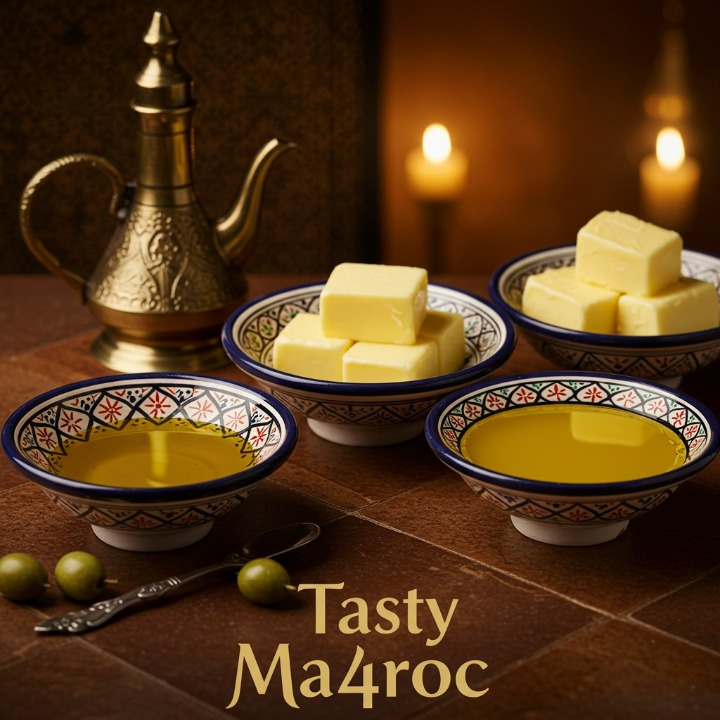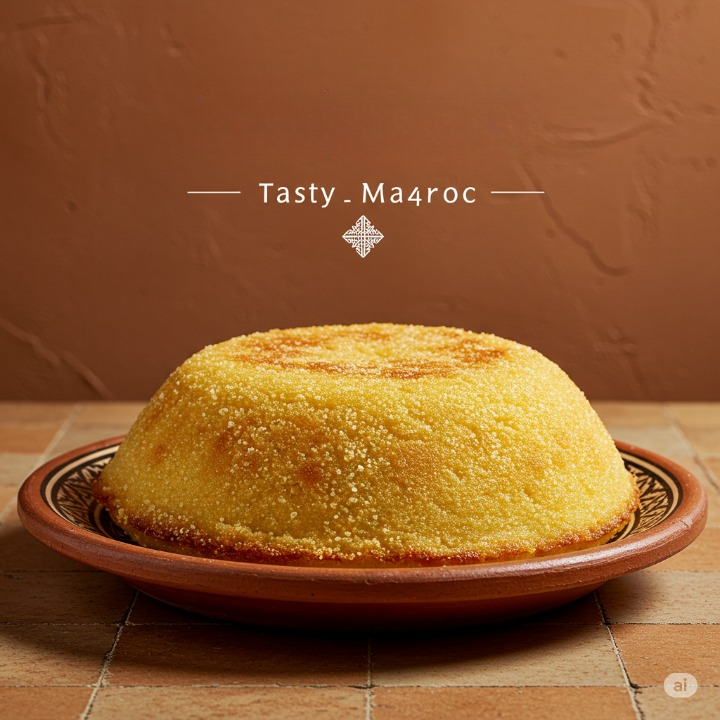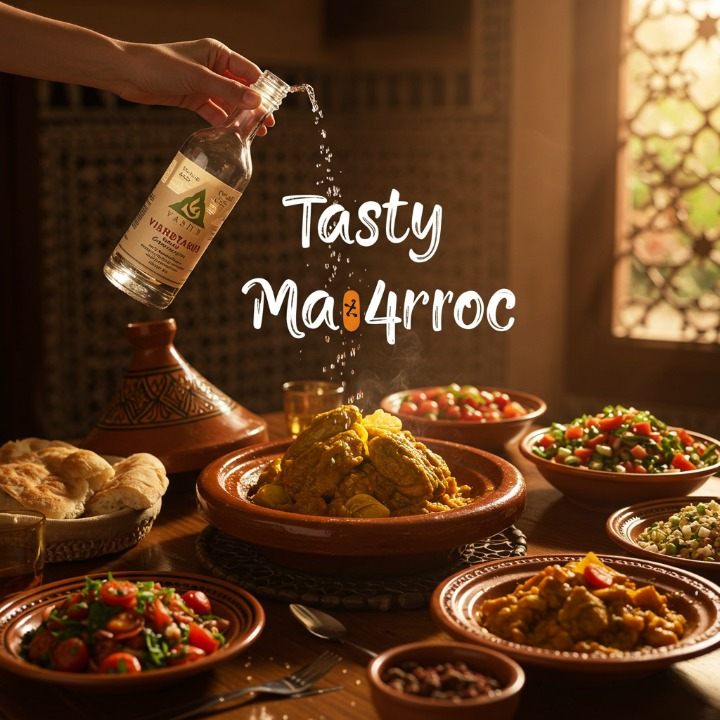
Unveiling the Golden Secret of Moroccan Cooking
There’s something magical about walking into a Moroccan kitchen. It’s not just the aroma of spices like cumin and cinnamon — it’s the rich scent of olive oil gently sizzling in a tagine, coating vegetables, or blending into a smooth marinade.
Growing up in Fez, I always wondered why my mother reached for the olive oil bottle before anything else — even though we had butter and ghee (smen) in the kitchen. Only later, after cooking my own meals and speaking with elders, did I truly understand: olive oil isn’t just an ingredient in Morocco — it’s a tradition, a health choice, and a flavor cornerstone.
In this article, I’ll take you through the cultural, culinary, and even emotional reasons why Moroccan recipes prefer olive oil over butter or ghee — with real tips, history, and a human touch from someone who’s lived it.
🌿 1. It Starts with the Land: Morocco’s Olive Legacy
Morocco is one of the world’s largest producers of olives and olive oil. In cities and villages alike, olive trees line the hills, and local souks are filled with jars of green and black olives, and jugs of freshly pressed oil.
🫒 In my grandmother’s village, they press olives using stone mills passed down through generations. Every winter, the whole family gathers for the olive harvest — it’s more than food, it’s a tradition.
Because olive oil is so abundant and affordable, it naturally became the primary fat in Moroccan kitchens. You’ll find it in:
- Tagines
- Salads
- Bread dough
- Even desserts like almond briouats!
🧈 2. Butter and Ghee (Smen) Exist — But Are Used Differently
While Moroccan cuisine does use butter and fermented ghee (smen), they’re usually reserved for specific dishes:
- Smen is used in small amounts to deepen flavor in couscous or special meat stews.
- Butter might appear in pastries like chebakia or krachel, but never in tagines or savory salads.
Why? Because both smen and butter can overpower delicate spices, while olive oil complements them.
🧪 3. Health Benefits: A Choice Rooted in Wellness
Even before the term “Mediterranean diet” was popular, Moroccans were eating that way — largely thanks to olive oil. Studies now confirm what our grandmothers always knew:
- Olive oil is rich in antioxidants and healthy fats.
- It reduces inflammation and supports heart health.
- It’s easier to digest than butter or ghee, especially in hot weather.
In a country with a sunny climate, heavy fats like ghee can feel too rich. Olive oil keeps dishes light yet flavorful, ideal for daily meals.
💬 Personal Note: I once made zaalouk (eggplant salad) with butter instead of olive oil — it tasted heavy and dull. When I switched back to olive oil, the flavors came alive again.
🍲 4. Flavor Fusion: Olive Oil as a Spice Carrier
In Moroccan cuisine, spices are everything: cumin, paprika, turmeric, ginger. But those spices need a carrier to unlock their full aroma.
Unlike butter, olive oil doesn’t mask spice flavors — it enhances them.
It:
- Helps spices bloom during slow cooking.
- Gives salads like taktouka a silky texture.
- Absorbs the scent of garlic and herbs better than dairy fats.
That’s why even a drizzle of olive oil over lentils or roasted vegetables makes a big difference.
🫙 5. Shelf Life & Climate Practicality
In traditional Moroccan homes — especially in rural areas — refrigeration wasn’t always available. Butter could spoil, ghee could go rancid. But olive oil? It’s stable, long-lasting, and even improves in flavor over time.
In warmer climates like Marrakech or Agadir, olive oil is simply more practical than butter or ghee.
🍞 6. Everyday Uses: Beyond Cooking
Here’s what might surprise you: Moroccans don’t just cook with olive oil — they eat it raw.
Some of our family favorites:
- A breakfast of khobz (bread) dipped in olive oil and honey.
- Olive oil mixed with thyme and sea salt as a snack.
- A drizzle over hot lentils or white beans for extra richness.
🥣 My father used to say, “If you’re sick, eat soup with olive oil — it’s better than any pill.” And I swear by it to this day.
🧴 7. Types of Olive Oil Used in Morocco
Not all olive oils are the same. Moroccans are picky about their oils:
- Green, fruity oils from the Atlas region are used for dipping and salads.
- Richer, darker oils are used for stews and tagines.
- Some even infuse oils with garlic or lemon peel for added flavor.
Many families store their oil in ceramic jars to keep it cool and dark.
📌 Final Thought: It’s More Than Oil — It’s Identity
When I moved abroad for university, I packed a small bottle of olive oil from my grandmother’s tree. I could live without couscous or fresh figs, but not without the taste of home.
Moroccan olive oil represents:
- Simplicity
- Wellness
- Connection to the land and heritage
- And a daily ritual that makes every meal a little more soulful
So yes, Moroccan recipes prefer olive oil — not out of trend, but out of wisdom, taste, and centuries of love for food that nourishes body and spirit.
💬 What About You?
Have you cooked Moroccan food using butter instead of olive oil? Did you notice the difference?
Share your thoughts below — or tell us about your favorite way to enjoy Moroccan olive oil. Tagine? Salad? Or just with warm bread?



